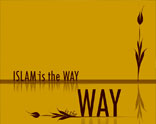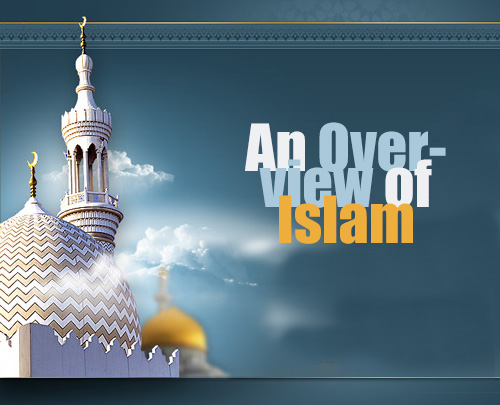(Religious Jurisprudent)
• Who is the Clerical Reference after the Absence of Imam Al Mahdi?
• What is Takleed (Reference to religious jurisprudent to obtain religious rulings and jurisprudence)?
• Who shall we refer to?
Introduction
In previous lessons, we mentioned that religion needs a guardian that safeguards this religion and the Qur’an and its rulings and takes care of the religion’s and Muslims’ affairs. After the death of prophets (peace be upon him and his household), Allah has undertaken to provide this mission and appointed an administrator, who is the Imam, for these tasks. Allah selected twelve Imam’s who are the elite of humanity and the best people after the Prophet (peace be upon him and his household). But the question that is raised as a consequence is whether Allah leaves this nation without a guide after Imam Al Mahdi. Would Allah leave the religion without someone who guards and explains it? Have people become indispensable of a person who explains and interprets the rulings and the ambiguous verses of the Holy Qur’an?
To whom does the nation refer in the era of absence?
If one had to travel for a long or short time, he would go to someone who trusts to deposit the most precious things that he has and asks him to take care of his family. He also asks the trustee to provide for them during his absence. Imam Al Mahdi has taken Imama after the martyrdom of his father Al Hassan Al Askary by orders from Allah and without being able to perform his duties in public due to the Abbasid Caliphs who wanted to kill him. They knew that he was the twelfth Imam who would fill this whole world with justice after it had been filled with injustice and tyranny. They tried hard to put out that divine light but Allah’s words were done, “Their intention is to extinguish Allah's Light (by blowing) with their mouths: But Allah will complete (the revelation of) His Light, even though the Unbelievers may detest (it).”1
Allah saved the Imam from the Abbasid and concealed him for a period of time called Minor Absence after he had prayed on his father (peace be upon him). However, the nation needs him, so he appointed ambassadors from the sons of this nation to keep in touch with nation. These ambassadors are:
1- Osman Bin Said Al Amry
2- Mohamad Bin Osman Al Amry
3- Abou Al Kassem Al Hussein Bin Rouh Al Noubakhti
4- Ali Bin Mohamad Al Samri
Nonetheless, Allah has His own will and what a will it is! The Imam had to vanish for a long time until Allah gives him the permission to reappear again. So, has the religion’s and people’s need for a guard, a teacher and a leader ended? Never. The Imam is traveling for a period of time and he has to keep his trust in safe hands. Who are these people? Let’s read between the lines as we carefully read the Prophet’s and His Descendents’ words so we may find the full answer.
Should we read the biography of Imam Al Mahdi, we find that Imam Al Mahdi appointed the persons to whom the nation refers to six days earlier to the death of his fourth ambassador Ali Bin Mohamad Al Samri. With the death of the fourth ambassador, the Major Absence began.
But to whom this nation shall refer to get the rulings of its affairs in religion and life? The followers asked this question to the Imam himself since they were sure that someone must play this role. The Prophet, however, had already assigned to whom this nation must refer: Religious jurisprudents are the trustees of prophets2.
How would they then not be the trustees of the nation? In fact, the answer of Imam Al Mahdi came as follows: “As for the religious jurisprudents who strive against themselves, preserve their religion or obey Allah, people may refer to him in their issues and affairs.”3 The reference are the just jurisprudents.
What is Takleed (Reference to religious jurisprudent to obtain religious rulings and jurisprudence)?
In the previous answer, the phrase ‘people may refer to him in their issues and affairs’. What is Takleed then?
The context of the above tale illustrates the meaning of takleed which is to refer to the religious jurisprudent in the rulings of the religion since the Imam made reference to these people who possess scientific, practical and behavioral qualifications so that to guide us through issues permitted and prohibited on us and to know more the doctrines of the great Islam. Through these people, the communication with the line of Imama and Imam Al Mahdi goes on.
Should we have a problem, we would like to know the answer. Whom would we refer to in order to get the solution? Should we have a construction problem, we would refuge to an architect. Would it be a health problem, we would see a doctor. But if such a problem is connected to our daily issues of worship and dealing with others, we have to refer to religious jurisprudents. By referring to such religious jurisprudents, we are making them responsible for giving us the ruling. They would be the ones who get the evidence to the same.
Who shall we refer to?
As we refer to a specialist physician experienced enough to entrust him with our bodies, we have to do the same when our religion is aimed. This is why a religious jurisprudent reference (Marjaa Al Takleed) must possess many qualities among which are the following:
1- He must be a jurisprudent who knows how to get into giving religious rulings from the Holy Qur’an and from the Sunna of the Descendents of the Prophet (peace be upon them) (tradition of the descendents). He must be the most knowledgeable jurisprudent who can understand the Holy Qur’an and the Sunnah.
2- He must be just (which we had referred to as to be trustworthy); i.e. he must be a believer who obeys Allah and does not do any sin.
3- He must possess an excellent and sharp memory so that he would not be forgetful.
4- He must not be after life but an ascetic.
5- He must not be a misbegotten.
6- There are many other conditions.
How do we know the Religious Jurisprudent Reference (Al Marjaa)?
After we have discussed the qualities that a religious jurisprudent reference must possess, we still have a dilemma which is how to differentiate between those who possess and do not possess these qualities or how to recognize who is the best persons who possess such qualities. There are certain conditions for this set forth by the Sharia:
1- The testimony of two experienced and just religious experts.
2- Circulation that is beneficial for knowledge.
3- Personal test, which cannot be made but by a religious expert.
For Memorization:
Imam Ali (peace be upon him) is reported to have said, “A religious scholar is the same as the palm tree which you are waiting for something to fall down from it,”4 and “The mind of someone who leaves listening to intellects shall be dead.”5
* "Beginning of the Path", "Lesson Eleven". By: Islamic Cultural Knowledge Organization. Knowledge Center for Islamic Studies and Researches.
1- Al-Qur'an, 061.008 (As-Saff [The Ranks, Battle Array]).
2- Mizan Al Hekma, V3, P2088.
3- Wasael Al Shiia, V18, P95, Hadith 20.
4- Al Kaki, V1, P37.
5- Mustadrak Al Wasael, vol: 11, p: 207.




















